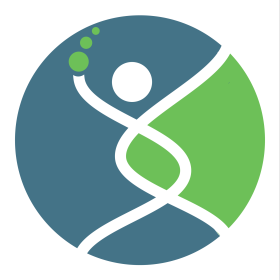Starting out, I thought it was all about memorizing syntax and solving algorithmic puzzles. Little did I know that the real magic happens when you start applying programming to solve meaningful, real-world problems.
The Journey from Theory to Practice
My programming journey began with Python basics in my first semester at McGill University. Like many beginners, I spent countless hours working through coding exercises and debugging simple scripts. However, everything changed when I gained employment through the Canada Summer Jobs Program at the McGill Research Institute of Health Centre (Brian Chen's Lab).
Real-World Applications
Working on Genedig's web platform through the Canada Summer Jobs Program opened my eyes to the incredible potential of programming in scientific research. Suddenly, the code I was writing wasn't just solving theoretical problems—it was contributing to front-end development and database management for a platform that helps researchers analyze genomic data and contribute to medical breakthroughs.
"The moment you realize your code can impact real-world problems is when programming transforms from a skill to a passion."
Tools That Made the Difference
Here are the key tools and technologies that accelerated my learning during my Canada Summer Jobs Program experience:
- Python: Essential for scientific computing and the foundation of many bioinformatics tools
- Angular: Used for building dynamic, user-friendly web interfaces for the Genedig platform
- PHP: Backend development for web applications in the research environment
- JavaScript: Client-side interactivity and modern web development practices
- SQL: Database management and querying for research data storage
- Git & GitHub: Version control became crucial when collaborating on research projects
Key Lessons Learned
1. Start with Problems, Not Languages
Instead of focusing solely on learning programming languages, I found it more effective to identify problems I wanted to solve and then learn the tools needed to address them. This approach kept me motivated and made the learning process more meaningful.
2. Embrace the Scientific Method
Working in bioinformatics taught me to approach programming with scientific rigor. Every hypothesis needs testing, every result needs validation, and every conclusion needs peer review. This mindset improved my code quality dramatically.
My Current Focus
As I continue my Computer Science studies at McGill and build upon my Canada Summer Jobs Program experience, I'm particularly interested in:
- Expanding my front-end development skills with modern frameworks
- Learning more about bioinformatics and its applications in healthcare
- Improving my database management and backend development abilities
- Contributing to projects that bridge technology and scientific research
Key Takeaways
From my early programming experiences through my Computer Science studies and Canada Summer Jobs Program:
Looking Forward
As I continue my Computer Science studies at McGill, I'm excited to keep learning and building on the foundation I've started. My Canada Summer Jobs Program experience showed me how programming can be applied in research settings, and it's motivated me to explore more.
I'm still early in my journey, but I've learned that programming is much more rewarding when you're working on projects that matter to you. Whether that's building better web interfaces, contributing to research tools, or simply creating something useful, there's always more to learn and discover.
